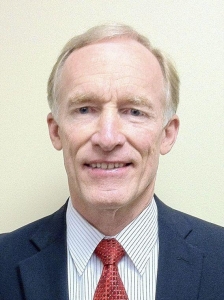Flexibility: Adjusting to Change with a Good Attitude
Warren Lehr | June 16, 2020
Warren Lehr | June 16, 2020
 Flexibility can be defined simply as adjusting to change with a good attitude. Change is always challenging, even in the best of times, but we now have an opportunity for an attitude check, a progress report on our flexibility, if you will. A crisis has a way of revealing who you really are and what you really think and how you really feel.
Flexibility can be defined simply as adjusting to change with a good attitude. Change is always challenging, even in the best of times, but we now have an opportunity for an attitude check, a progress report on our flexibility, if you will. A crisis has a way of revealing who you really are and what you really think and how you really feel.
In the United States, we are very fortunate that our lifestyles, relative wealth and availability of quality healthcare are arguably second to none. However, our response to necessary changes has often been less than flexible. Actually, some who have experienced the most incredible and tragic losses have shown the greatest flexibility, while many others have been described with words like entitled, angry, ungrateful, complaining and disrespectful. There is certainly nothing wrong with being cautious, anxious or respectfully fearful in the face of danger to ourselves or our loved ones. However, flexibility should enable us to evaluate change, exercise proper precautions, improvise, adapt and go forward with our lives.
It seems we are all, if we admit it to ourselves, less flexible than we might have thought we were prior to this pandemic. It appears that when all is going well, the waters of life are fairly calm, and we get our way for the most part, we feel we are very flexible. But being flexible in the face of constant change we have found can be difficult, especially when the change is so unpredictable. Theodore Roosevelt said, “There can be no life without change, and to be afraid of what is different or unfamiliar is to be afraid of life.” So, even in view of the negative, we keep moving forward.
On the positive side, change almost always has some benefits. During constant change, there is an opportunity for all of us to closely examine our lives for what’s really important. E. Stanley Jones said, “You can judge how far you have risen in the scale of life by asking one question: ‘How wisely and how deeply do I care?’” Ask yourself, “Who and what do I really care about?” “What experiences with whom do I now realize I’ve been taking for granted?” As we gain newfound clarity in our lives as a result of all these changes, there is opportunity to be flexible in our relationships with others.
Take the opportunities to let the people close to you know what you’re thinking and what you’ve learned about yourself. As you come back together with others, tell them what you’ve missed, what you appreciate about them or what you miss when they’re not there. In other words, speak from your heart! These conversations might be with your friends, peers or family. Don’t miss the opportunity let others know how you really feel.
This is a unique time. When we face challenges, fear, anxiety and hardships, we see life more clearly; we see what is important and what isn’t. People are more open to important conversations. They’re more willing to listen to others who are there for them, who will listen and understand their fears, their anxieties, their newfound clarity. Take the opportunity to be real with one another, to be a little vulnerable, to let a few more people get to know you, and to get to know a few more people a little better. Hopefully, we’ve all learned to be a little more flexible in knowing we can bend and not break, that we need not fear the changes that life will inevitably bring.
Maya Angelou said, “You may not control all the events that happen to you, but you can decide not to be reduced by them.” That’s adjusting to change with a good attitude. That’s flexibility.
Originally published in the Owasso Reporter on 06/16/2020

 Boldness: One of the First Character Traits
Boldness: One of the First Character Traits